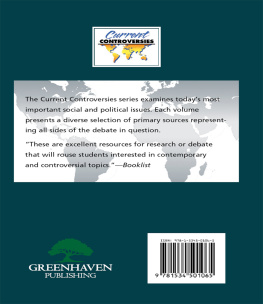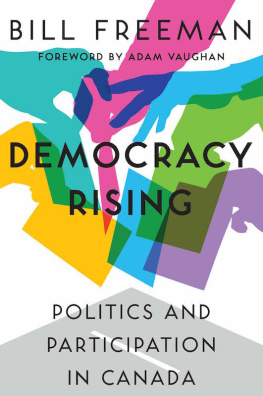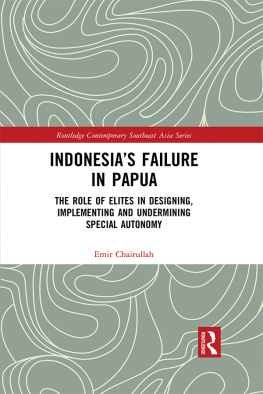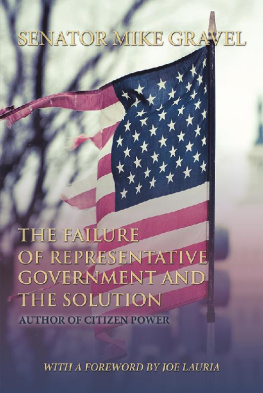The Political Elite and
Special Interests
Other Books in the Current Controversies Series
The Border Wall with Mexico
Drones
Fracking
Genetic Engineering
Homelessness and Street Crime
LGBTQ Rights
Political Correctness
Privacy and Security in the Digital Age
Returning Soldiers and PTSD
The Political Elite and
Special Interests
Rachel Bozek, Book Editor
Published in 2018 by Greenhaven Publishing, LLC
353 3rd Avenue, Suite 255, New York, NY 10010
Copyright 2018 by Greenhaven Publishing, LLC
First Edition
All rights reserved. No part of this book may be reproduced in any form without permission in writing from the publisher, except by a reviewer.
Articles in Greenhaven Publishing anthologies are often edited for length to meet page requirements. In addition, original titles of these works are changed to clearly present the main thesis and to explicitly indicate the authors opinion. Every effort is made to ensure that Greenhaven Publishing accurately reflects the original intent of the authors. Every effort has been made to trace the owners of the copyrighted material.
Cover image: Ted Soqui/Corbis via Getty Images
Library of Congress Cataloging-in-Publication Data
Names: Bozek, Rachel, editor.
Title: The political elite and special interests / edited by Rachel Bozek.
Description: New York: Greenhaven Publishing, 2018. | Series: Current controversies | Includes bibliographic references and index. | Audience: Grades 9-12.
Identifiers: LCCN ISBN 9781534501065 (library bound) | ISBN 9781534501058 (pbk.)
Subjects: LCSH: Pressure groups--United States. | Elite (Social sciences)--United States. | United States--Politics and government--21st century.
Classification: LCC JK1118.P65 2018 | DDC 322.430973--dc23
Manufactured in the United States of America
Website: http://greenhavenpublishing.com
Contents
Foreword
Introduction
Chapter 1: Are Special Interest Groups Beneficial to Democracy?
Overview: Interest Groups Are Multidimensional
Green Garage
Interest groups bring several benefits to the advocacy table. However, potential drawbacksand there are manycan easily detract from this as they come into play within their spheres of influence.
Yes: Special Interest Groups Are Beneficial to Democracy
Strong Backing Often Equals Efficacy
Michelle Leach
With the right financial and public support, advocacy groups can have a strong influence on outcomes in policy and legislation.
Unions Are Among the Few Groups Representing the Middle Class
David Madland and Danielle Corley
While many special interest groups provide upper class Americans with clear representation, unions are among the very few organizations accomplishing this for the middle class.
No: Special Interest Groups Are Not Beneficial to Democracy
Special Interest Groups Do Influence Policy
Stephane Wolton
How much sway do lobbying groups have? It is difficult to know for sure. Scholars may be failing to capture the full extent of the special interest groups influence.
Lobbying Has the Potential to Undermine Democratic Ideals
George Rennie
As in the United States, lobbying has seen an expansion in activity in Australia. While technically anyone can be a lobbyist, the system favors the powerful, whose money and connections get things done but may not serve the interests of the average citizen.
Chapter 2: Are Widespread Perceptions of the Political Elite Fair?
Overview: The Concept of Elitism Is Nuanced and Complicated
K. Arjun
There are plenty of grey areas within the concepts defining and surrounding the political elite and elitism. Defining this group and its role is not clear cut.
Yes: Widespread Perceptions of the Political Elite Are Fair
Political Elites Control Power Resources over the Masses
Luis Garrido Vergara
It is important to understand the importance of social distinction and the theories of power structure when examining the influence of political elites on social change.
Elites Are a Class, Not a Belief
Natalie Schmidt
There seems to be some confusion about using the term political elite as a blanket label for liberals. But that lazy shift in thinking does disservice to the problems with real political elitism.
No: Widespread Perceptions of the Political Elite Are Not Fair
The Caricature of the Liberal Metropolitan Elite Is Inaccurate
Ryan Shorthouse
Politicians like to use the elite as punching bags for the ordinary people. But thats just a tactic to pit one group against the other.
Metropolitan Elite Is a Lazy Misnomer
Michael Rundell
The term metropolitan elite is unfair and inaccurate. Worse, its turned into a convenient insult to throw at anyone who doesnt agree with ones views.
Chapter 3: Do Special Interest Groups Keep the Political Elite in Check?
Overview: Interest Groups and Elite Theories Explain the Driving Forces in Politics
The University of Toledo
Interest group theory is when many different interests compete to control government policy, and their conflicting interests balance each other out to provide good government. Elite theory suggests that a wealthy elite runs the United States.
Yes: The Special Interest Groups Keep the Political Elite in Check
Several Categories of Special Interest Groups Contribute to the Shape of American Politics
R. Allen Hays
There is a special interest group for almost everyone. No matter how specialized the concern, chances are you can find an organized group with a voice on the political stage.
The Policy Preferences of Special Interests Must Align with Those of the General Public
James Swift
According to one study, organized interest groups do not correlate with the political stances of the economic elite. But does this mean they serve the average citizen?
No: Special Interest Groups Do Not Keep the Political Elite in Check
The Interests of the Wealthy Dominate the Political System
Douglas J. Amy
Special interest groups are a primary problem within the US government. They have too much pull over politicians working to do right by the American public.
Money Is the Most Influential Factor in Elections
Rachel Alexander
Corporate contributions in politics are often left-leaning. Citizens United may be one of the best ways for the political right to keep up.
Chapter 4: Do Average Americans Have an Opportunity to Be Heard?
Overview: The Average American vs. the Political Elites
Martin Maximino
A major study uncovers some alarming truths about the influence of deep-pocketed donors on public policy in the United States.
Yes: Average Americans Have an Opportunity to Be Heard
Efforts to Foster Change, However Small, Can Make a Difference
Jennifer Earl
When it comes to being heard, any level of activismincluding slacktivism, or flash activism, can be effective. Voters must become engaged to feel a part of the possibility of change.







